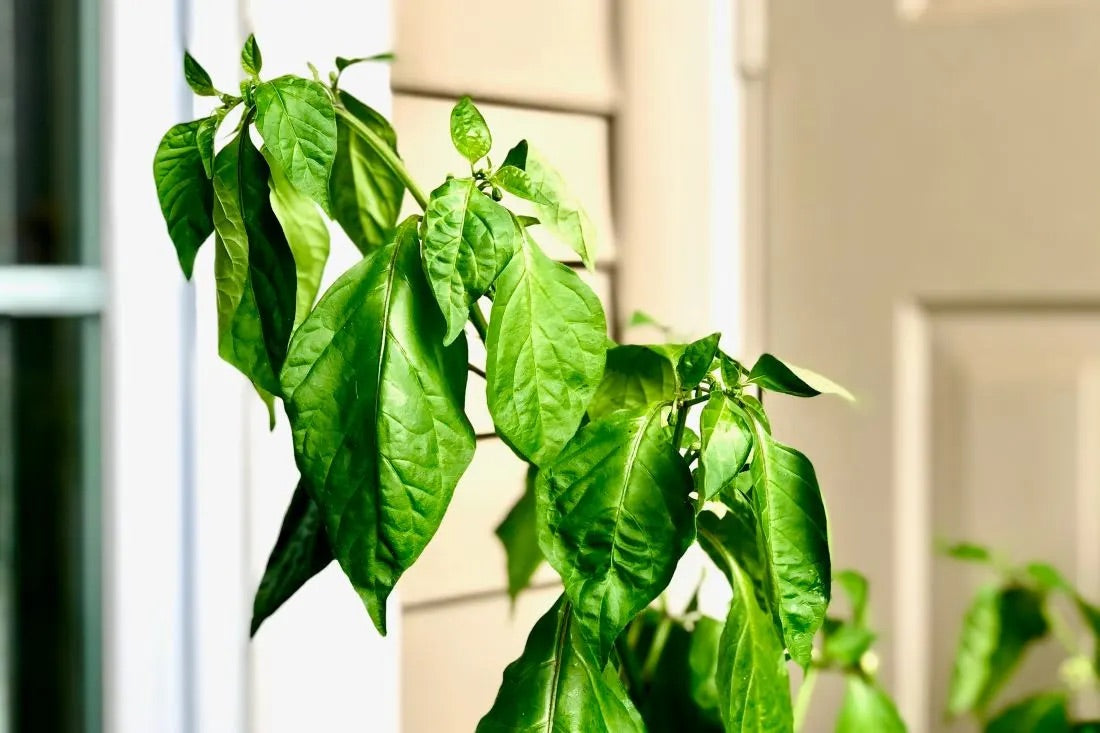Dive into the world of plant care with our comprehensive guide on understanding and addressing plant stress. From discerning signs like yellowing leaves and stunted growth to root-causes like watering errors and light imbalances, this article offers remedies and tips to ensure your plants not only survive but thrive. Explore RyzoLux's range of organic solutions, from nutrient-rich soils to beneficial insects, and nurture your green companions the right way.
Introduction
Plants, akin to us humans, have their unique language. Through subtle cues and changes, they communicate their needs and well-being. If you've ever wondered why your indoor foliage looks a little off or why that resilient outdoor plant seems to be wilting, you're not alone. Delve deep with us into the fascinating world of plant stress, and empower yourself with knowledge to give your greens the best care they deserve.
Understanding Plant Stress
Stress in plants, much like in humans, is a response to unfavorable conditions. It's an alarm system that signals an imbalance between environmental demands and the plant's ability to cope. Understanding this stress is essential not just for the health of your plant but for the broader ecosystem of your garden or indoor space.
Signs of Plant Stress
Yellowing or Browning of Leaves: One of the most common indicators of a stressed plant is the yellowing or browning at the tips of the leaves. This can be a sign of numerous issues, from overwatering to a lack of essential nutrients.
Leaf Drop: If you find more leaves on the ground than usual or if they're dropping before autumn for deciduous plants, it's a telltale sign that your plant is in distress.
Stunted Growth: A plant that isn't growing at its usual pace or has stopped growing altogether may be experiencing stress. This could be due to a lack of essential nutrients, suboptimal lighting, or other environmental factors.
Wilting: A drooping plant is not always a result of lack of water. Plants can wilt due to both overwatering and underwatering.
Rooting Out the Causes
Watering Woes: Overwatering and underwatering are the most common mistakes. Overwatering leads to root rot, which deprives the plant of the oxygen it needs. Underwatering, on the other hand, leaves the plant parched and unable to absorb nutrients.
Light Levels: Sunlight is a primary energy source for plants. If a plant is displaying elongated stems or pale leaves, it might be receiving too little light. Conversely, leaves that appear scorched or faded may be getting too much direct sunlight.
Nutritional Needs: Plants require various minerals to thrive. A deficiency in any essential nutrient can lead to a plethora of problems. For instance, a nitrogen deficiency might turn leaves yellow, while a lack of potassium could cause brown, scorched-looking edges.
Temperature Traumas: Plants, especially those cultivated indoors at RyzoLux, have optimal temperature ranges. A sudden cold draft or exposure to heat can stress the plant, resulting in wilting or browning of leaves.
Bringing Remedies to Root and Leaf
Water Wisdom: Stick your finger about an inch into the soil. If it feels dry, it's time to water. For plants susceptible to root rot, make sure pots have adequate drainage. Consider using a moisture meter if you're uncertain about when to water.
Light Logic: Familiarize yourself with the light preferences of your plants. Rotate them occasionally to ensure they receive uniform light, and consider investing in grow lights for darker spaces.
Feed with Finesse: Depending on the plant species, the nutritional needs vary. RyzoLux offers a range of fertilizers designed to meet the unique needs of different plants, ensuring they receive a balanced diet.
Tend to Temperature: Ensure your plants are in places with stable temperatures. Protect them from sudden temperature fluctuations by positioning them away from frequently opened doors or radiators.
Soil Solutions: The soil you use plays an instrumental role in plant health. A soil mix that's too dense can suffocate roots, while one that's too light may not retain enough moisture. RyzoLux offers specially formulated soils for various plants. Periodically refreshing the topsoil can also rejuvenate a plant, supplying it with vital nutrients.
Pest Prevention: Insects such as aphids, spider mites, and mealybugs can cause significant stress to plants. Regularly inspecting the underside of leaves and keeping the foliage clean can help deter pests. If you spot any, natural remedies like neem oil or insecticidal soap can be beneficial.
Humidity Helps: Some plants, especially tropical varieties, require higher humidity levels. If you notice your plant's leaves have brown edges, it might be craving more humidity. Solutions include placing a humidifier near the plant, regularly misting the plant, or placing the plant on a tray of watered pebbles.
Potting and Repotting: As plants grow, they might outgrow their pots, causing stress. If the roots are growing out of the drainage holes or the plant looks too big for its pot, it's time to repot. When doing so, always ensure that the new pot is not excessively larger than the old one, but just a size up.
Embrace Organic Solutions
While it might be tempting to resort to chemical solutions at the first sign of plant stress, RyzoLux recommends trying organic methods first. These are gentle on your plants, environmentally friendly, and usually effective in addressing common issues.
Compost: This organic material is a powerhouse. It nourishes the soil, improves its texture, and aids in moisture retention. Mixing compost into your soil can give your plants a health boost.
Beneficial Insects: Believe it or not, not all insects are harmful to plants. Ladybugs and predatory mites can help control pest populations. These "good bugs" feed on common plant pests, acting as a natural pest control.
Natural Fertilizers: Fish emulsion, seaweed extract, and worm castings are all excellent natural fertilizers. They release nutrients slowly, reducing the risk of over-fertilization.
Mulching: Mulch acts as a protective layer. It conserves soil moisture, regulates soil temperature, and even prevents weed growth. Organic mulches like straw, leaves, or pine needles can also enrich the soil as they decompose.
Conclusion:
Every Plant Deserves Care Every plant, whether it's a resilient succulent from the desert or a delicate orchid from tropical rainforests, communicates its needs. By understanding the signs of plant stress, you can preemptively address issues, ensuring your plants not only survive but thrive.
Choosing quality products for your plants is also pivotal. RyzoLux offers an extensive range of plant care products, from nutrient-rich soils to natural pest control solutions. By investing in your plants, you're not only beautifying your space but also contributing to a healthier environment.

